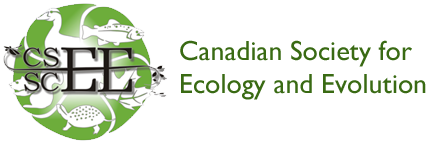MSC OPPORTUNITY: MOOSE MOVEMENT AND FORAGE SELECTION IN NORTHERN ONTARIO WITH IMPLICATIONS FOR PREDATION RISK AND APPARENT COMPETITION WITH THREATENED CARIBOU
BACKGROUND: Boreal woodland caribou (Rangifer tarandus) are threatened in Ontario and face continued declines due to anthropogenic disturbance, change in forest composition, climate change, and other factors. Anthropogenic disturbance changes forest composition by decreasing coverage of old growth conifer forest and increasing cover of young seral stage forest. Vegetation changes increase populations of moose (Alces alces) which in turn results in an increase in predator populations such as wolves (Canis lupus) and increased incidental predation on caribou through apparent competition. Apparent competition is a primary driver of in caribou population decline in Western Canada. Continued economic expansion in Ontario’s Far North is resulting in increased disturbance which could increase population numbers of moose and wolves that previously existed at low numbers.
This project is part of a collaborative effort to quantify disturbance-mediated apparent competition by quantifying relationships between disturbance, caribou, moose, and wolves to evaluate the apparent competition hypothesis in the Far North. Specifically, this project will focus on whether human-mediated and natural disturbance results in an increase in primary productivity and subsequently moose selection of these areas.
OPPORTUNITY: I am looking for a motivated MSc student to join my lab to investigate moose movement and habitat selection in Ontario’s far north. This position will provide an opportunity to work with researchers from numerous institutions including the University of Guelph (Quinn Webber), University of Manitoba (Christina Prokopenko), and the Ontario Ministry of Natural Resources (Art Rodgers, Brent Patterson, and Jennifer Shuter).
REQUIREMENTS: I am looking to recruit students with a passion for ecology and wildlife, with a willingness to learn techniques in animal movement and habitat selection. Candidates should have a BSc in Biology, Ecology, Zoology, Natural Resources Management, or a related field. Experience with R statistical software and Geographic Information Systems is an asset. Students must also be willing to travel and perform fieldwork in Northern Ontario.
BENEFITS: This is a well-paid position, with a salary of ~$28,000/year. Students will also be eligible for a graduate assistantship valued at ~$11,000/year. Funds will also be available for a computer, travel to northern Ontario for fieldwork, as well as field gear. Students will receive training in movement and habitat selection tools such as integrated step selection functions. Students will also have opportunities to collaborate with a team of students, early career researchers, and wildlife professionals throughout Ontario and Canada.
START DATE: September 2025.
LOCATION: Nested at the interface between the northern boreal and temperate forest, Lakehead University is a fitting location to study caribou. Indeed, no university in Ontario is located closer to caribou populations, like some of interest to this research. Lakehead is a comprehensive university with a reputation for innovative programs and cutting-edge research. Lakehead has approximately 10,000 students and 2,160 faculty and staff. With an emphasis on collaborative learning, independent critical thinking, and a multidisciplinary teaching approach, Lakehead offers a variety of degree and diploma programs at the undergraduate, graduate, and doctoral levels through its nine faculties. The Faculty of Natural Resources Management at Lakehead focusses on the interface between conservation and resource management. Thunder Bay is also home to a vibrant arts and culture scene and areas around Thunder Bay provide extensive opportunities for outdoor recreation.
For more information, please e-mail Dr. Michel Laforge at mlaforge@lakeheadu.ca. To apply, please send a cover letter, CV, and 2-3 references (preferably as a single PDF file) to Mike Laforge at mlaforge@lakeheadu.ca. Review of applicants will begin May 1st, 2025 and will continue until the position is filled.
